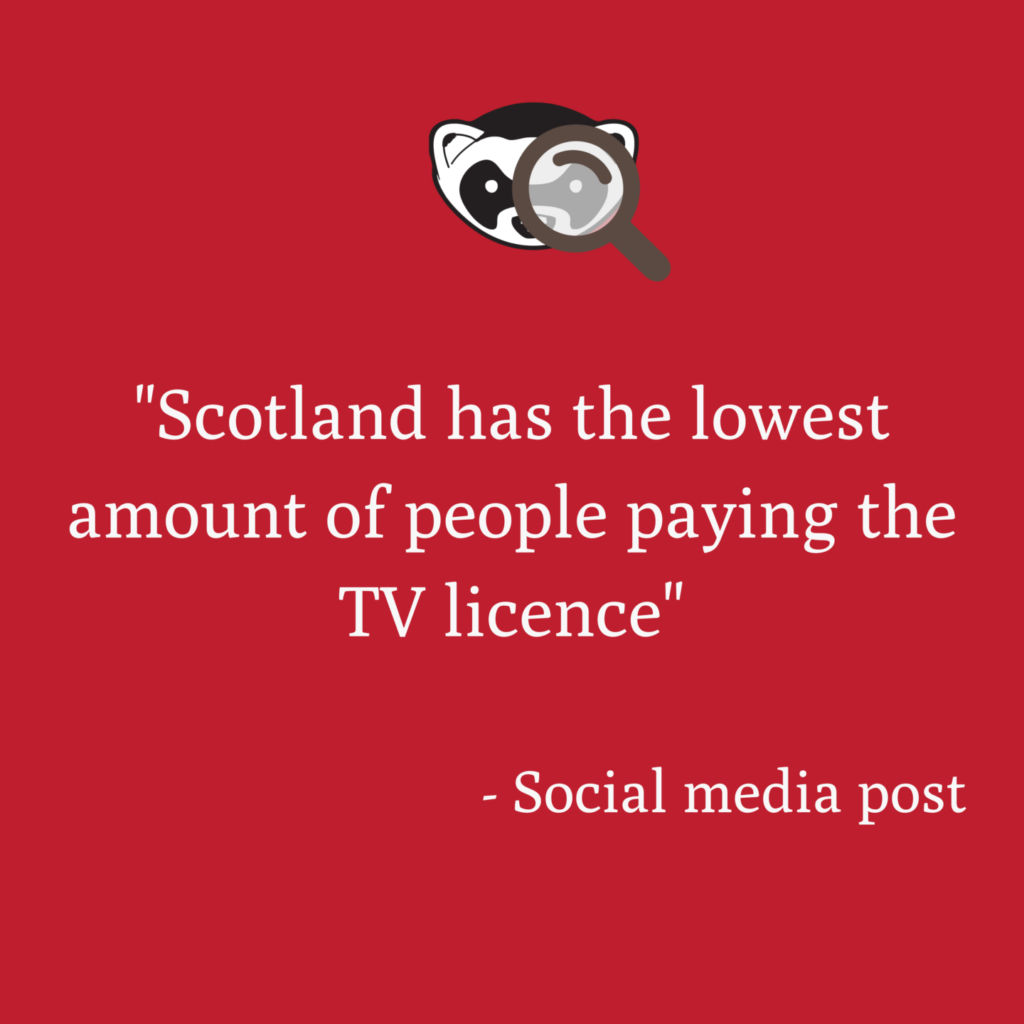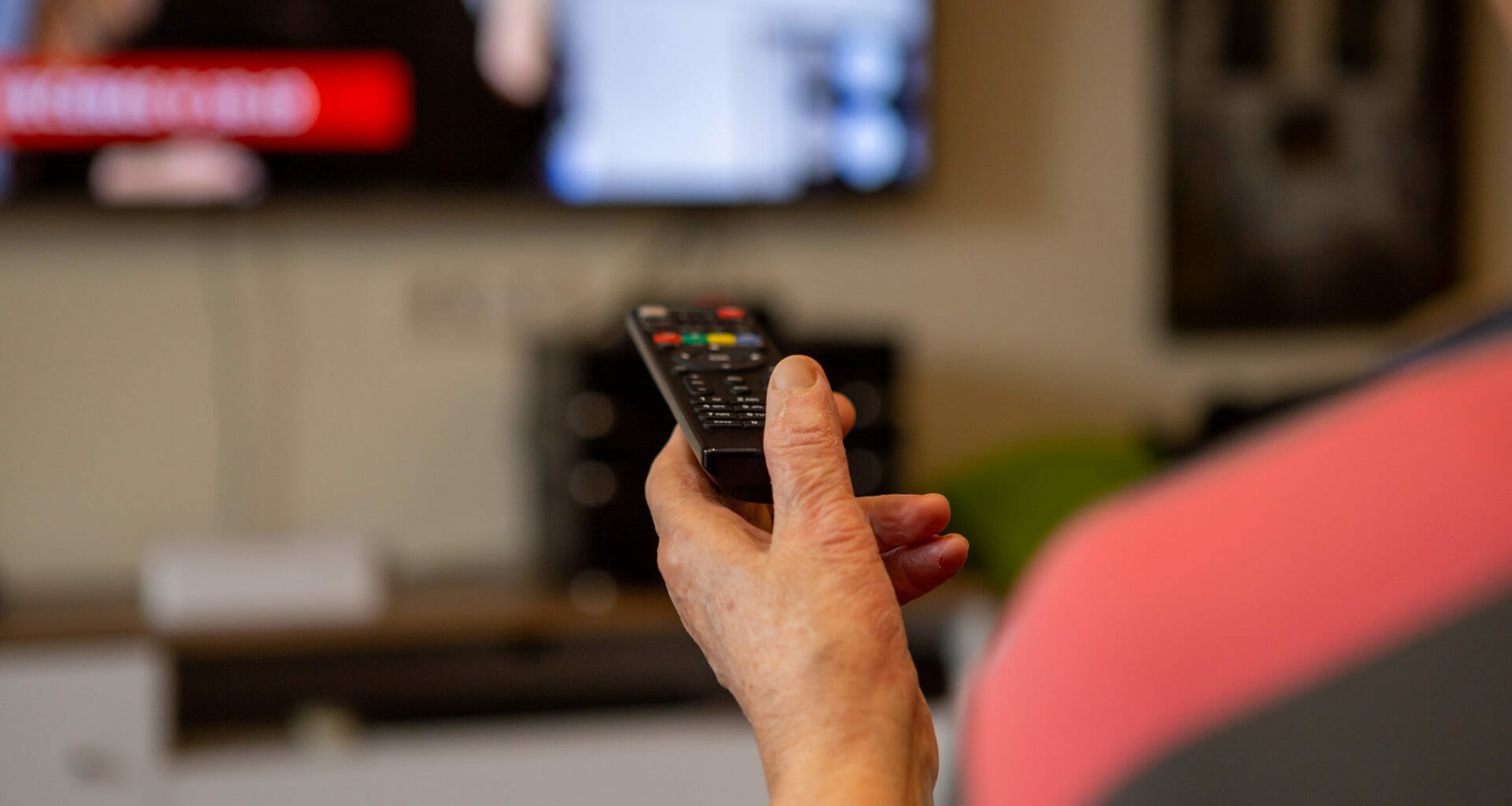A viral post on social media criticising the TV licence suggested that Scots are less likely to pay for it than people in other parts of the UK.
The image, which has been shared more than 1,000 times across Facebook, was posted by a Facebook page called Independent Scot.
It shows a letter sent by TV Licensing that writing has been added to, criticising the TV licence as a “fraud” and saying there is “no law that requires a person” to pay for it.
The headline attached to the image says “Scotland has the lowest amount of people paying the TV licence. Well done Scotland”.

Ferret Fact Service looked at the claim and found it Unsupported.
Evidence
Money raised from TV licences in the UK, which cost £159 a year, is used to fund public service broadcaster the BBC. The money is used to pay for shows and services including TV, radio, the BBC website and catch-up service iPlayer.
The BBC is responsible for issuing TV licences, but it outsources the administration of that to companies including Capita Business Services. Those companies use the trademarked name TV Licensing to carry out that work.
According to government figures, 27 million UK households – the equivalent of 95 per cent – owned at least one television at the beginning of 2020. TV Licensing data shows that in the 2019-20 year there were 25.5 million TV licences in force in the UK, equivalent to about 94 per cent of households with a television. The figures are not broken down by constituent nation.
In a report published earlier this year, the UK Government found an estimated licence fee evasion rate of 7.25 per cent across the UK. However BBC Licence Fee Unit estimates – made in March 2016 – showed that the highest proportion of licence fee evaders were based in Scotland.
At that time it was thought that 10 per cent of all Scottish households in possession of a television had failed to pay the licence fee. The evasion rate in Northern Ireland was estimated to be nine per cent and in England and Wales it was thought to be six per cent.
Is it a legal requirement to have a TV licence?
Under the terms of the Communications Act, which passed into law in 2003, it is not a criminal offence to own a television without also having a licence but it is against the law to use one to watch live or catch-up programmes without a licence. The act specifically states that “a person who installs or uses a television receiver is guilty of an offence”.
You do not have to own a TV to be required to pay a licence fee. If you watch live programmes, or BBC programmes on demand or via the iPlayer streaming service, you still need a valid licence. You do not need a licence if you only watch non-BBC streaming services which do not show live TV, such as Netflix, or use your TV to watch home media such as DVDs or Blu-Ray discs.
The Communications Act was passed at Westminster and the legislation applies in all four UK nations.
As well as being responsible for collecting the licence fee, the BBC is responsible for enforcing it. In the first instance enforcement action includes “sending frequent letters” and “making contact by phone”.
The BBC also has the authority to get a search warrant to determine whether a TV receiver is being used illegally and says that “as a last resort” it will pass cases of evasion in Scotland to the Procurator Fiscal “who will decide what action to take, what charges should be brought, and in which court any prosecution should take place”. Penalties include a maximum fine of £1,000.
Ferret Fact Service verdict: Unsupported
Figures from the BBC Licence Fee Unit estimated that Scotland had the highest proportion of licence fee evaders in the UK in 2016. These are the latest figures, but are five years out of date. There is no breakdown of figures available on the number of Scots paying who hold a TV licence so we cannot say for sure if it remains the case that Scotland has the “lowest amount of people paying the TV licence”.
It is incorrect to say there is “no law that requires a person” to pay for a TV licence. It is a criminal offence to own a television without a licence if you watch live TV of any type or BBC programmes via catch up services.

Photo thanks to iStock/borevina.














